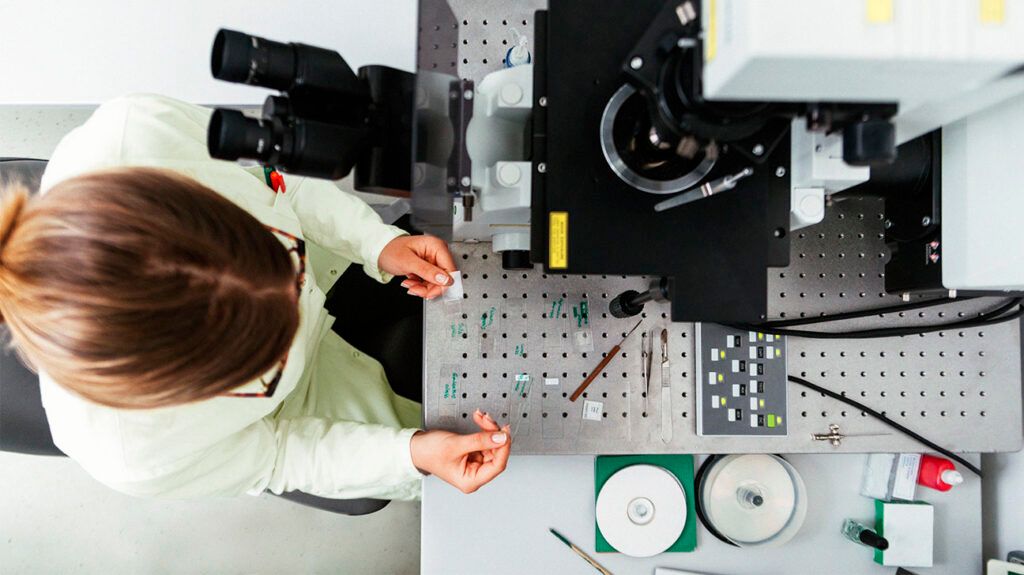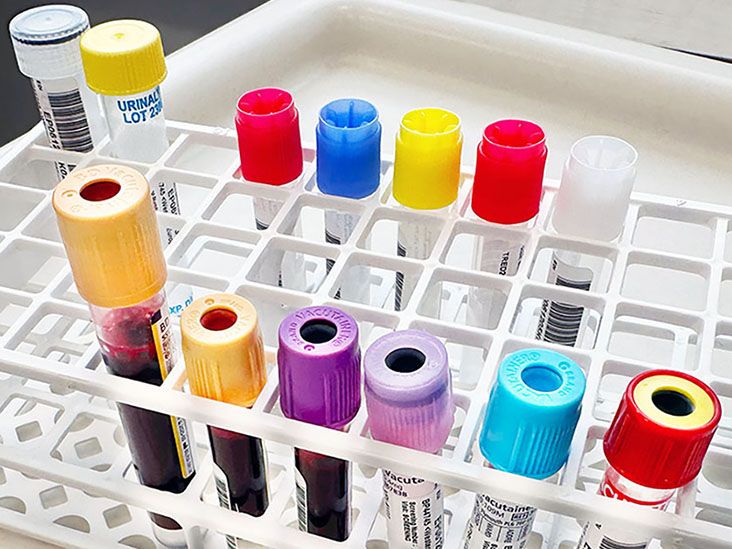Mast cell activation syndrome, or disease (MCAS), is a condition that causes mast cells to release these substances too frequently, resulting in severe allergic reactions.
After detecting an allergen, mast cells release substances called mediators. This results in inflammation, the same response that occurs during an allergic reaction, and helps the body heal.
In people with MCAS, however, mast cells are overactive and cause severe allergic reactions.

Mast cells are immune cells in the junctions between mucosal and epithelial tissues and the external environment, such as in the gut, lungs, skin, and around blood vessels.
Aside from maintaining various bodily functions, their primary role is to trigger inflammatory responses to defend the body against pathogens and allergens.
When foreign bodies are present, mast cells respond by releasing stored substances, called mediators, from their granules in a process known as degranulation.
These mediators, which include chemicals such as histamine, cause an inflammatory cascade. This cascade recruits white blood cells that cause swelling, smooth muscle constriction, and increase mucus production to destroy the allergen.
In people with MCAS, the immune system inappropriately activates mast cells, causing them to release too many mediators. This results in severe allergic reactions that repeatedly affect several body systems.
MCAS vs. mastocytosis
Although both conditions are diseases of mast cells and present with similar symptoms, they are different.
Mastocytosis occurs when a gene mutation causes the body to produce too many mast cells. MCAS is an activation disorder, meaning that a person has an average amount of mast cells but frequently releases excessive mediators, causing a severe reaction.
If the person meets the criteria for a diagnosis of MCAS, a doctor needs to rule out a primary clonal mast cell disorder as the cause.
This requires further blood testing for a mutation called KIT D816V and, depending on those results, may require a bone marrow biopsy. If the bone marrow biopsy is negative, the diagnosis will be “idiopathic” MCAS.
The causes of MCAS may stem from a person having the D816V gene mutation. Causes may also include a person becoming triggered by:
- allergens
- odors
- environmental triggers
- temperature changes
Although many people cannot identify a trigger for the onset of their MCAS symptoms, most people report exposure to some stimuli. Some potential triggers include:
- sudden temperature changes
- certain foods and beverages
- alcohol, drugs, excipients, and vaccines
- venoms, such as those from snakes, jellyfish, spiders, and insects
- physical, emotional, and environmental stress
- contrast dyes
- surgical, dental, invasive, and radiological procedures
- hormonal fluctuations
- infections
- pain
- touch, friction, mechanical irritation, and vibration
A person’s symptoms may develop abruptly and irregularly or occur frequently and persistently.
In MCAS, triggers induce a spontaneous release of mediators that can affect multiple systems. Some symptoms people might experience include physical and neurological symptoms.
Physical symptoms
Physical symptoms may affect different parts of the body, such as:
- Heart: A person may experience tachycardia and low blood pressure.
- Skin: A person may experience hives, angioedema, and itchy skin.
- Lungs: A person may experience wheezing and shortness of breath.
- Gastrointestinal tract: A person may experience nausea, diarrhea, cramping, and abdominal pain.
Neurological symptoms
Neurological symptoms may include:
- headaches
- acute back pain
- seizures
- vertigo
- paraesthesia
- chronic inflammatory demyelinating polyneuropathy
- depression
- cognitive dysfunction
- generalized anxiety
- panic attacks
- sleep disturbances
Symptoms of anaphylactic shock include swelling of the tongue and throat, hives, and difficulty breathing.
Anaphylaxis: Symptoms and what to do
Anaphylaxis is a severe allergic reaction that can be life threatening. The symptoms develop suddenly and include:
- hives
- swelling of the face or mouth
- wheezing
- fast, shallow breathing
- a fast heart rate
- clammy skin
- anxiety or confusion
- dizziness
- vomiting
- blue or white lips
- fainting or loss of consciousness
If someone has these symptoms:
- Check whether they are carrying an epinephrine pen. If they are, follow the instructions on the side of the pen to use it.
- Dial 911 or the number of the nearest emergency department.
- Assist the person in moving from a sitting position to lying down. If they have vomited, turn them onto their side.
- Stay with them until the emergency services arrive.
Some people may need more than one epinephrine injection. If the symptoms do not improve in 5 to 15 minutes, or they come back, use a second pen if the person has one.
A person may receive a diagnosis of MCAS when they present with both clinical symptoms and a laboratory profile indicative of the condition and when a doctor excludes other conditions.
A person should meet the following criteria to receive a diagnosis of MCAS:
- They should have recurrent episodes of severe allergic reactions or anaphylaxis present throughout the body, involving at least two of the following bodily systems:
- the heart
- the skin
- the lungs
- the gastrointestinal tract
- Their symptoms link with increased specific biologic mast cell mediator levels in the blood or urine. Biomarkers include histamine, tryptase, PDG2 and its metabolites, and LTC4 and its metabolites.
- After receiving medications such as anti-mast cell mediator therapy to increase the mediator, mediator levels reduce and symptoms resolve entirely.
Currently, there is no cure for MCAS. However, its management is similar to anaphylaxis management. Doctors can also provide symptomatic treatment based on an individual’s presentations.
Treatment will typically start with a quick administration of epinephrine, provision of oxygen, and IV antihistamines. Doctors may also provide a person with auto-injectable epinephrine in case of emergencies. People with chronic MCAS may need corticosteroids.
Depending on the person’s symptoms, a doctor may give them one or a combination of the following medications for allergic reactions:
- first generation H1 blockers, such as diphenhydramine
- second generation H1 receptor blockers, such as cetirizine
- H2 blockers, such as ranitidine
- aspirin
- leukotriene inhibitors, such as montelukast
- monoclonal antibodies, such as omalizumab
- mast cell stabilizers
Because stress is also a trigger for mast cell activation in MCAS, a person may also wish to consult with a therapist or learn relaxation techniques and exercises to help manage their stress.
Aside from taking medications, people with MCAS should try to avoid exposure to any trigger that may activate their symptoms.
Some tips and home remedies to help manage MCAS include:
- Opting for more natural solutions: Many household, hygiene, and beauty products contain toxins and chemicals. People can reduce their exposure to these toxins by opting for more natural options.
- Avoiding foods high in histamine: People should avoid histamine-rich foods, such as fermented products, cured and canned meats, preservatives, tomatoes, alcohol, citrus, and chocolate.
- Immediately treating any infections: Infections can trigger mast cells. People should test for pathogens and treat them promptly to ensure the body does not undergo an inflammatory response.
- Avoiding other triggers: People should try to avoid possible triggers—such as sudden changes in temperature, insect bites, exposure to chemicals, and mechanical irritation—as often as possible.
Managing stress
The connection between the nervous system and mast cells may explain why stress can trigger MCAS. Ways to avoid and manage stress can include:
- doing physical exercise
- practicing mindfulness and learning to stay present
- doing activities that help manage stress, such as Tai chi, yoga, and breathing exercises
- practicing affirmations
Diet tips
Diet may also help with MCAS triggers, including:
- eating foods low in histamine
- eating whole foods
- avoiding processed foods
- eating gluten-free foods
- eating lactose-free foods
- eating foods low in oxalate and amine, such as apples, fish, and yogurt
Having support from friends, family, loved ones, and support groups may help those who are managing MCAS. Some support groups include:
- The Mast Cell Disease Society
- Mast Cell Action for those in the UK
Learn more about low histamine diets here.
Is MCAS an autoimmune disease?
MCAS is not an autoimmune disease but can occur alongside other autoimmune diseases.
What are the most common triggers for MCAS?
The most common triggers for MCAS include allergens, environmental triggers, stress, temperature changes, and infections.
What disorders mimic MCAS?
Symptoms of MCAS may mimic other disorders, such as chronic pain syndromes, chronic fatigue syndrome, and fibromyalgia.
What foods should you avoid if you have mast cell activation syndrome?
Foods high in histamine are best for a person with MCAS to avoid, including:
- avocado
- citrus fruits
- sardines
- tomato
- tuna
- aged cheese such as gouda
- alcohol
- chocolate
- fermented foods
MCAS occurs when mast cells frequently release excessive mediators in response to triggers, causing people to experience severe reactions.
There have been few studies on MCAS due to limited awareness and diagnosis.
People with MCAS have varying symptom presentations and frequencies. Although there is currently no cure for the condition, several treatment options can help manage its symptoms.


